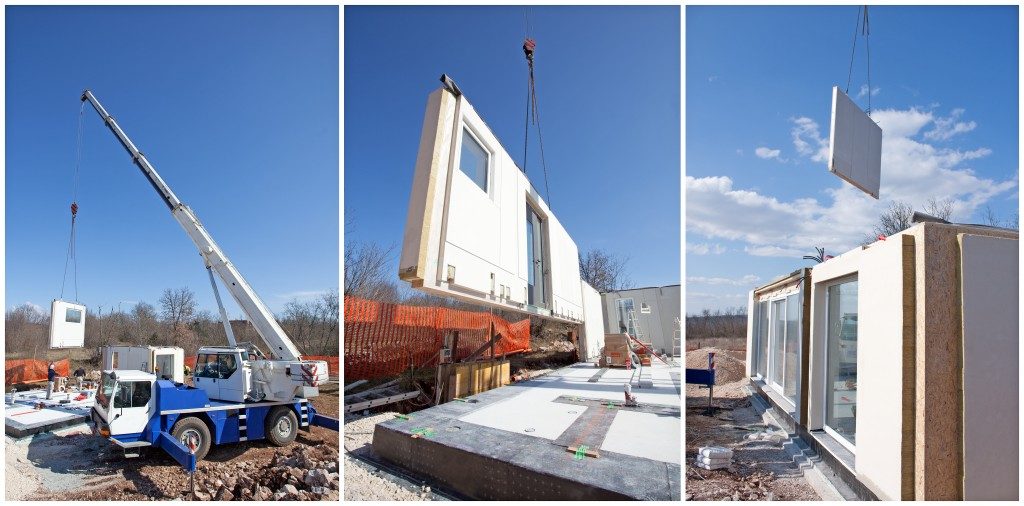Construction has immensely changed in only a few decades. From the brick-and-mortar approach of building homes and office towers, it is now employing pre-fabrication in building engineering. One such example is modular construction. Modular construction is an efficient approach to mass housing and multi-level building projects. There are now many modular construction companies that you can hire for your building projects.
Modular Construction Defined
Modular housing uses factory-produced building units. These are transported to the project site and then assembled on site as components of a building. The units or modules may already be completed rooms or parts of the building.
Each modular unit is self-supporting, which means that it can stand alone. Modular units are made of the same materials using conventional building codes and standards in construction. Most modular housing projects build cellular-type projects such as social housing and student residences, but skyscrapers can also be built using a more complex structural framework.
Benefits of Modular Construction
Generally, modular construction offers builders a more sustainable, quicker, and safer building approach. Specifically, it provides:
- Flexibility and reusability as buildings made of modular units can be disassembled and reused on another site, decreasing wastage on both use of material and energy;
- Better air quality as modular units are built in factories where the environment is more controlled;
- Shorter construction schedules as modular unit construction and foundation work are done simultaneously, shortening project life cycle to as much as 50%;
- Faster installation as units can be installed on site more efficiently (up to 8 units per day);
- Fewer or zero delays since most construction is done in the factory, eliminating delays caused by weather and other man-made events;
- Quality control measures as factory production processes follow the same or even exceed standards used in site-built projects;
- Safer construction since factory construction avoid accidents as well as other potential disruptions in the construction area’s vicinity; and
- Better design since modular construction work is done in factories where architects and building engineers can spend more time making adjustments to design.
Other Attributes of Modular Construction

Modular construction is best for projects where site and time constraints are existent. Producing units off-site solves issues with site space and a shorter project life cycle. The approach is also useful in extensions and other renovation projects. Rooftop extensions can benefit from modular construction.
Modular construction is suitable for projects that build multiple repeated units such as social housing, private housing, and student housing. Buildings made of modular units typically go as high as 10 stories, with six of them being the optimum number of floors. With taller buildings, however, stability is ensured with the use of a braced steel core.
In this age where time and space resources are getting scarce by the minute, utilising approaches for building and creating ideas, objects, and artefacts must also consider resource constraints efficiently. Modular construction is one that adheres to such need. It guarantees building engineering projects an effective alternative, especially when faced with issues related to limits in design and construction. As an alternative, it can provide aspects of the project added elements of safety, economies of scale, and sustainability.

